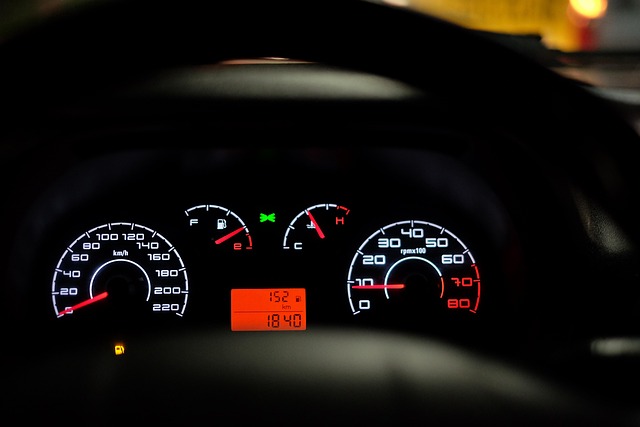Having your check engine light turn on is never a pleasant experience, but it’s important to understand whether the light is flashing or solid — because this difference can mean the difference between a minor issue and a potentially serious engine problem. This article explains the difference between a flashing and solid check engine light, what each may indicate for your vehicle, and how you should respond if it happens while you’re driving in New Zealand.
Difference Between a Flashing and Solid Check Engine Light
What a Flashing Check Engine Light Typically Indicates
If your check engine light is flashing, it’s a clear warning signal that there is a serious problem with your vehicle that needs immediate attention. In most cases, a flashing check engine light points to a critical issue such as an engine misfire. A misfire can cause unburned fuel to be dumped into the exhaust system, leading to the possibility of severe damage to the catalytic converter—a very expensive component to replace.
This type of issue usually suggests that the vehicle should not be driven until it has been properly diagnosed and repaired. Continuing to drive when the check engine light is flashing can cause significant engine damage or even pose a safety hazard, especially if you’re experiencing reduced performance or strange noises under the hood.
What a Solid Check Engine Light Usually Means
On the other hand, a solid check engine light generally means that your vehicle’s onboard diagnostics system has detected an issue with the engine, emissions, or powertrain system, but the problem is not immediately critical. This could range from a loose fuel cap to a faulty oxygen sensor or spark plug issues. The vehicle will likely still function normally or with just a minor drop in efficiency or performance.
Although a solid light indicates a non-urgent problem, it should not be ignored. The longer such issues go unaddressed, the more likely they are to develop into more serious—and costly—repairs. It’s best to have the issue checked as soon as it’s convenient by a qualified auto electrician.
Common Causes of a Flashing or Solid Check Engine Light
Flashing Check Engine Light Causes
Some of the most common causes for a flashing check engine light in New Zealand include:
1. Engine misfires due to worn spark plugs or ignition coils.
2. Serious fuel injection system issues.
3. Catalytic converter overload caused by misfiring cylinders.
4. Severe vacuum leaks or loss of compression in one or more cylinders.
These problems need urgent attention, and you should stop driving the vehicle and contact a professional auto electrician immediately if the light begins flashing.
Solid Check Engine Light Causes
A solid check engine light is often connected to less severe issues such as:
1. A loose, damaged, or missing fuel cap, which can affect vapour emissions.
2. Sensor failures, including those related to oxygen, airflow, or temperature.
3. Minor misfires or older spark plugs that are just beginning to degrade.
4. Poor fuel quality or the presence of water in the fuel system.
While these issues aren’t immediately dangerous, they can negatively affect fuel economy and engine performance if left unresolved. It’s smart to book an assessment with an auto electrician like Eurosparx as soon as possible.
What to Do If Your Check Engine Light is Flashing
If your check engine light starts flashing while you’re driving, the best course of action is to pull over safely and stop the vehicle. Driving with a flashing engine light can lead to irreversible damage to your engine’s internal components or your catalytic converter.
Contact a qualified auto electrician immediately. In Auckland and surrounding areas, Eurosparx offers mobile diagnostics and electrical services, so you can get expert help without towing your vehicle to a shop. Waiting even a short time with a flashing check engine light can cost you hundreds or thousands in repairs, but quick action may prevent permanent damage.
What to Do If Your Check Engine Light is Solid
If your check engine light is solid but not flashing, you can continue driving in most circumstances—although with caution. You should avoid long trips or heavy acceleration and have your vehicle inspected as soon as possible. Pay attention to how your vehicle is performing. If it’s hesitating, stalling, or struggling to accelerate, this may indicate a worsening issue.
Having a diagnostics check performed with a scan tool can reveal the error code stored in your car’s computer system. At Eurosparx, our diagnostic process includes scanning your vehicle’s computer system, interpreting the fault codes, and inspecting the affected components. This allows us to provide a targeted repair that addresses the root cause, not just the symptom.
The Role of Modern Diagnostic Tools
Modern vehicles feature increasingly complex electrical and computer-controlled systems. That’s why having access to professional diagnostic tools is essential for accurately identifying the cause of a check engine light, whether flashing or solid. Tools used by professionals like Eurosparx can perform detailed scans that pinpoint exact system failures within your engine, transmission, or emissions components.
DIY code readers can provide basic info, but often misinterpret how severe a fault is. A professional diagnosis can help avoid unnecessary repairs or further damage by identifying the precise problem right away. In New Zealand, where strict emissions and WOF (Warrant of Fitness) standards apply, having code issues resolved quickly protects both your engine and your legal compliance.
How New Zealand Conditions May Affect Your Vehicle
New Zealand’s climate and terrain present unique challenges for vehicles, which may increase the likelihood of engine-related issues. Coastal environments with high humidity and salt air can accelerate electrical corrosion in engine wiring and sensor points. Driving on gravel roads or in rural areas may also introduce more dust and dirt into the engine or damage undercarriage trays that protect the engine bay.
Cold starts in winter, especially in the South Island, can stress ignition components and battery power—some of the common causes of check engine alerts. For this reason, having your electrical systems checked seasonally can prevent problems from escalating into full failure. If your check engine light is on, it’s vital not to delay diagnostics, especially if you’re frequently driving in demanding conditions.
Why You Shouldn’t Ignore the Check Engine Light
Some drivers attempt to dismiss the check engine light as a “normal” occurrence or hope it will resolve on its own. While minor faults can occasionally clear temporarily, they often return if the underlying issue is not fixed. Ignoring the warning sign can lead to dangerous driving conditions or worse engine failure, especially if you’re dealing with a flashing light and symptoms like poor performance or knocking sounds.
Another reason you shouldn’t ignore this alert is that ongoing faults can put your vehicle at risk of failing its next WOF test, something every Kiwi driver needs to pass to legally operate their car on the road. A flashing or sustained solid check engine light almost always indicates you won’t pass inspection until the issue is resolved. Taking care of a small problem early often means saving on much larger costs later.
How an Auto Electrician Can Help Diagnose the Issue
Auto electricians are trained to recognise complex electrical and sensor-related faults that could cause your check engine light to activate. At Eurosparx, we specialise in vehicle diagnostics and can assess both petrol and diesel engines across all major makes and models. We use advanced tools to retrieve and understand the error codes and recommend precise, lasting solutions that restore your engine’s performance and reliability.
Many issues tied to the check engine light involve electrical faults—ranging from sensor malfunctions to wiring degradation. As experienced auto electricians based in New Zealand, we are ideally suited to resolve these problems efficiently. We can also perform mobile services across various regions, which means greater convenience when your vehicle is not drivable.
Get Expert Assistance With Check Engine Light Issues
Knowing the difference between a flashing and solid check engine light can save you time, money, and stress. A flashing light is a serious warning that needs immediate attention, while a solid light signals a problem that still merits timely troubleshooting. Either way, understanding these differences helps you take control of your vehicle’s health before small issues turn into costly repairs.
As expert auto electricians in New Zealand, Eurosparx offers diagnostic, repair and mobile services to quickly identify and address check engine light concerns. Contact our team today by calling 09 218 7789.


